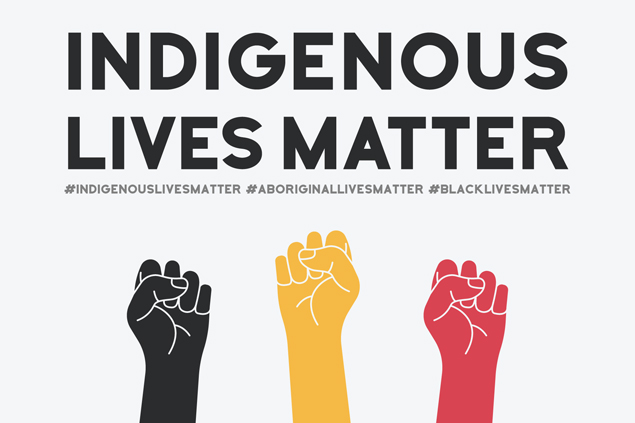My review of social media and its affordances for Indigenous people seeking to explore and share their identities would not be complete without a look at some of the challenges to engaging in these digital spaces. Many Indigenous social media users have to continually weigh the risk vs benefit of being open about their Indigeneity in online spaces. This is due to the potential for backlash, racism, bullying, and violence. If they do share their Indigeneity, then it becomes a question of how much.
In Carlson and Kennedy’s (2019) article, they analyze results from their online survey of Indigenous respondents and share many of the challenges they face to participating in these environments as openly Indigenous. Some participants discuss sharing their Indigeneity to then only have it be questioned because they don’t look a certain way. Some have had to face stereotypes of criminality and inferiority. Others have faced intense discrimination and prejudice. Because of this, 50% of their respondents stated they omit certain aspects of their Indigeneity for safety and self preservation. One respondent discussed how social media can fuel these behaviors because it “gives racism a platform and … becomes a tool for people with not very good intentions” (2019). What was new for me, is that this form of racism is called ‘platformed racism’ because it is derived from the culture of social media platforms.
Anonymity has been another factor in the ability of social media users incivility to go unchecked. There have been many studies done that depict how this behavior is tied to whether or not the user’s identity is intact or not. Sadly, they discuss how racism in these digital environments is on the rise and how 62% of their respondents had faced racist and harmful content daily. Despite this, Indigenous people continue to brave online trolls, and risk their safety, in order to control what their identity is and how they want to share it.

Hi Jessica
Thank you for your post. I am not all that active on social media so appreciate that you spent time searching around and brining your observations to the conversation. Combined with the article you shared, it is unfortunate that society still perpetuates “looking in a certain way” culture. I had a very interesting speaker present on my first day of teaching and I remember very clearly when he asked the audience if they felt he should be giving the talk on Indigeneity and many mumbled their uncertainties only so that he could identify himself properly as Metis/Italian. His speech on identity and the issues of Indigeneity in urban areas as incredibly impactful and I still refer to it often.
Oh wow, that that is such a simple yet effective way to demonstrate to your learners the importance of not judging a book by its cover!